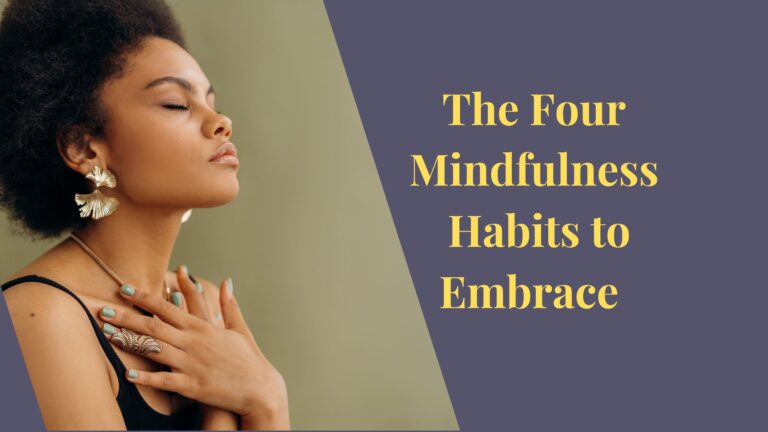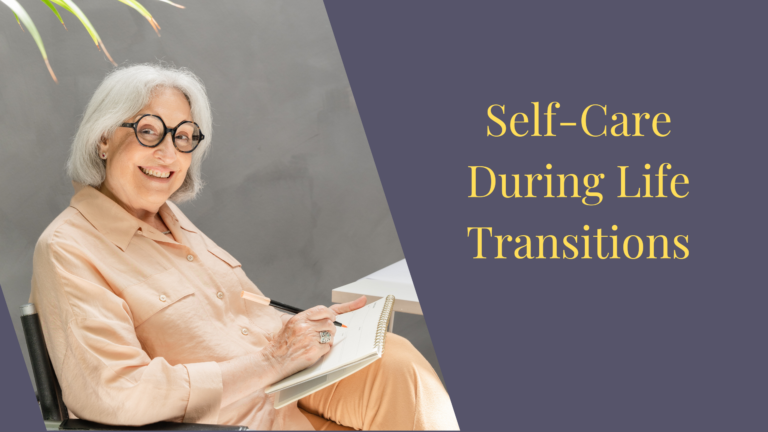As a woman over 60, this stage presents a unique opportunity to rediscover yourself and align your talents to create a deeper sense of purpose. Free from many responsibilities that dominated earlier years, now is the perfect time to explore who you are and what you’re truly capable of achieving. Children are grown, careers are winding down, and societal expectations often loosen their grip. This creates the perfect environment for exploration and reinvention.
You bring a wealth of experience, wisdom, and perspective that can only come from decades of living. Take a moment to appreciate that every challenge you’ve overcome, and every role you’ve played—whether as a professional, mother, friend, or community member—has contributed to who you are today.
Our talents play a significant role in our happiness and well-being because engaging in activities that leverage our natural abilities provides a sense of satisfaction, accomplishment, and joy. When we use our talents, we enter a state of flow, where we feel deeply immersed and engaged, which research has linked to higher levels of happiness and reduced stress.

A 2018 study by Kuykendall, Tay, and Ng found that people who frequently use their strengths and talents in their daily activities report higher levels of life satisfaction and a greater sense of purpose. This is because utilizing our talents not only helps us achieve personal and professional success but also fosters a sense of authenticity and alignment with our true selves. By focusing on our talents, we can create opportunities for personal growth and meaningful impact, enhancing our overall well-being.
While prioritizing relationships and spiritual values boost happiness, integrating our talents into our daily lives adds another crucial layer to our sense of fulfillment. Together, these elements create a life that is both joyful and deeply aligned with who we are.
Differentiating between talents that serve our life goals and those better suited as supportive talents or hobbies requires an understanding of how these abilities align with our core values and purpose.
A 2020 study by Harzer and Ruch, published in The Journal of Positive Psychology, suggests that when individuals use their talents in ways that are congruent with their life goals and values, they experience higher levels of meaning and fulfillment. This means that talents aligned with your overarching purpose are likely to feel more rewarding and energizing, contributing directly to your long-term aspirations.
What Are Talents and Why They Matter
Our talents are the innate skills and abilities we naturally excel at, often without conscious effort. Understanding and acknowledging these talents is key to leading a fulfilling life. When we align our talents with our purpose, we not only enhance our personal satisfaction but also impact others positively.
Key Benefits of Knowing Your Talents:
- Greater self-confidence and awareness
- Improved career satisfaction and performance
- Enhanced focus and direction in life
To identify which talents serve your life goals:
- Assess Alignment with Core Values: Reflect on whether using a particular talent brings a sense of meaning and satisfaction. If it aligns with your mission or values, it’s more likely to support your life goals.
- Impact and Contribution: Consider the impact of using this talent. If it allows you to make a meaningful contribution or move closer to your aspirations, it should be prioritized as a primary talent.
- Energy and Fulfillment: According to the study, talents that leave you feeling energized and fulfilled are often more suited to serve your life purpose. In contrast, those that feel draining or neutral are better kept as hobbies.
Supportive talents or hobbies, while enjoyable, are not align directly with your life goals but can still provide balance and personal satisfaction. They serve as a way to relax or nurture creativity without the pressure of contributing to a greater purpose. Recognizing this distinction helps ensure you use your time and energy on what matters most while keeping space for enjoyable pursuits.
Uncovering Hidden and Forgotten Talents
Reflective Journaling
Spend time writing about activities you enjoy and that come naturally to you. Reflect on questions like:
- What do you do that feels effortless?
- What do people often compliment you on?
- Which tasks make you lose track of time?
Strengths Assessment
Use tools like the CliftonStrengths or VIA Character Strengths Survey to find your top strengths and talents. These assessments offer insights into areas where you naturally excel.
Feedback from Others
Ask trusted friends, family, or colleagues for feedback about your strengths. Sometimes, others can see our talents more clearly than we do. Questions to ask include:
- What do you think I’m naturally good at?
- When have you seen me at my best?
Create a Personal Achievement Log
List past achievements and analyze what talents were involved. This can highlight recurring strengths. Note what felt easy and what you found particularly rewarding.
Experiment and Reflect
Try new activities or volunteer for different roles to discover hidden talents. Afterward, reflect on whether the experience felt natural, enjoyable, or aligned with your strengths.
These exercises can help you gain clarity about your talents and how they can be leveraged for personal and professional fulfillment.
Talents lead to authentic fulfillment because they are our natural strengths
They are the things we are inherently good at and enjoy doing. When we use our talents in meaningful ways, we experience a sense of alignment and purpose that feels genuine and satisfying.
Here’s why:
Ease and Flow: When we engage in activities that come naturally to us, we often enter a state of flow—where time seems to pass effortlessly. This flow state creates a deep sense of joy and engagement, making our work feel less like a chore and more like a passion.
According to Csikszentmihalyi’s research on flow, talents we overlook can often lead to fulfilling “flow” experiences, where we lose track of time and feel deeply engaged (Csikszentmihalyi, 1990). Sometimes, these hidden talents go unrecognized because they come naturally, making them easy to overlook. Gathering feedback from those around you can reveal unique strengths that will align better with your purpose than more obvious, familiar skills.
Cal Newport, in his book Deep Work, suggests that focusing intensely on valuable skills allows us to reach a state of deep engagement and productivity, similar to Csikszentmihalyi’s concept of “flow” (Newport, 2016). Newport argues that by dedicating uninterrupted time to challenging, high-impact work, we develop rare and valuable skills, leading to greater fulfillment and purpose. Often, we overlook talents that come naturally or are easy to dismiss; however, investing deeply in these skills can reveal their potential to contribute meaningfully to our purpose. Seeking feedback from those around us can help highlight these overlooked strengths, especially when they align with areas where we can apply focused, intentional practice. This approach not only uncovers hidden talents but also fosters a deeper level of engagement and satisfaction in our work.
[Bonus Section] Avoiding Distractions and Creating Deep Work
Establish Rituals and Routines
Create specific routines around deep work sessions, including set times and a designated workspace free from distractions. For instance, setting a timer or scheduling blocks of time for deep work can help condition your mind to enter a focused state more easily.
Prioritize High-Impact Tasks
Focus on tasks that have the most significant long-term benefits and align with your goals. This focus on quality over quantity helps filter out less important work and allows you to direct energy toward tasks that require intense concentration and problem-solving.
Limit Digital Interruptions
Newport emphasizes reducing digital distractions as a fundamental step. This includes turning off notifications, using apps to block distracting websites, or working offline whenever possible. Minimizing interruptions helps keep your attention fixed on your current task without the lure of quick, but superficial, activities.
Practice Productive Meditation
Engaging in “productive meditation” involves thinking deeply about a challenging work-related problem during otherwise unoccupied time (like walking or commuting). This practice strengthens your ability to focus and problem-solve, even outside structured work periods.
Embrace Boredom
Newport advocates for building tolerance for boredom by resisting the urge to reach for distractions during idle moments. By avoiding the habit of constant stimulation, you train your brain to be more comfortable in focused, undistracted states, making it easier to sustain attention during deep work sessions.
Leveraging our talents allows us to live more authentically
We’re not forcing ourselves into roles or expectations that don’t align with who we are. Instead, we’re embracing our true selves, which leads to a more genuine and satisfying life experience.
A 2020 study by Martela and Ryan confirms that when individuals pursue activities aligned with their core values and interests, they meet essential psychological needs for autonomy, competence, and relatedness—factors crucial for well-being and sustained motivation. The study found that people who engage in intrinsically motivated activities report higher life satisfaction and a greater sense of purpose.
Moreover, research on job satisfaction highlights the impact of value alignment on long-term fulfillment. For instance, a study by Allan, Duffy, and Douglass (2018) found that individuals who perceive a sense of meaning in their work—particularly when it aligns with personal values—report greater job satisfaction and resilience against stress. They concluded that values-based engagement in work is a key predictor of professional well-being.
Finally, a 2019 study by van Zyl and colleagues also emphasizes that aligning tasks with personal strengths and values significantly enhances engagement and productivity. When people focus on activities that resonate with their authentic selves, they are more likely to enter states of flow, experience intrinsic satisfaction, and demonstrate higher commitment to personal and professional goals.
We have increased confidence: Using our talents builds self-assurance because we’re operating in areas where we naturally excel. This confidence helps us embrace challenges and opportunities more fully, leading to personal growth and fulfillment.
We can create a meaningful impact: When we apply our talents to serve or uplift others, we create a positive ripple effect that contributes to a greater sense of purpose. Knowing that our strengths make a difference in the world enhances our well-being and gives our life deeper significance.
Recognizing Joy vs. Obligation
Aligning talents with joy is essential for a sustainable sense of purpose. When individuals focus solely on marketable skills or societal expectations, they face burnout (Deci & Ryan, 2000). Reflecting on which skills naturally excite and engage you, rather than those that feel like a duty, can clarify which talents are worth prioritizing.
Differentiating Between Purposeful Talents and Enjoyable Skills
Purposeful talents often lie at the crossroads of joy and meaningful impact. Research has shown that people who engage in activities they love but don’t view as part of their life’s purpose often report high satisfaction but lower commitment (Grant, 2008). For instance, someone may enjoy painting as a creative outlet without feeling compelled to pursue it as a career. Recognizing this distinction can help you focus on skills that are truly part of your life path, rather than pressuring yourself to monetize or assign purpose to every enjoyable skill.
Using Feedback to Identify Purpose-Aligned Skills
Feedback from trusted friends, family, or colleagues can help you understand your talents from an outside perspective. Studies indicate that other people’s observations of our strengths can often be more objective and reveal talents we miss due to familiarity (Vazire, 2010). This input can validate known skills and uncover overlooked ones, enabling you to focus on those most aligned with your purpose.
Conclusion
Understanding our talents is essential, but aligning with purpose requires discernment. By focusing on activities that bring joy, seeking external feedback, and distinguishing between purposeful talents and recreational skills, you can craft a more authentic and fulfilling path. Research confirms that aligning our unique strengths with what genuinely resonates within us fosters a life of greater satisfaction and resilience.






